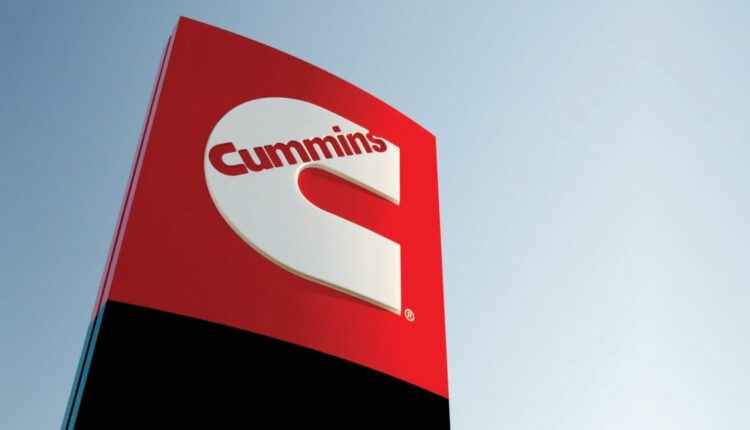Cummins and Sinopec Officially Launch Joint Venture To Produce Green Hydrogen Technologies in China
Cummins Inc. (NYSE: CMI) and China Petrochemical Corporation (“Sinopec Group”) announced the formation of a 50:50 joint venture — Cummins Enze (Guangdong) Hydrogen Technology Co., Ltd (“Cummins Enze”). The joint venture will accelerate the affordability and availability of green hydrogen through increased technological innovation, research and development, and manufacturing capacity.
Cummins Enze, located in Foshan, Guangdong Province in China, will initially invest $47 million (RMB 300 million) to locate a manufacturing plant to produce proton exchange membrane (PEM) electrolyzers. The plant will initially have a manufacturing capacity of 500 megawatts of electrolyzers per year upon completion in 2023, which will be gradually increased over the next five years to reach one gigawatt of manufacturing capacity per year.
Cummins Enze will also provide a variety of hydrogen generation system solutions to meet diversified application requirements. This will include offering electrolyzers for both small-scale hydrogen production, such as a hydrogen fueling system for on-site hydrogen generation, as well as for large-scale hydrogen generation installations capable of 100 megawatts and beyond.
“China’s embrace of green hydrogen is a breakthrough for the planet, and Cummins and Sinopec joining together to realize the potential of green hydrogen is a huge leap forward for scaling our innovative PEM electrolyzer systems,” said Amy Davis, Vice President and President of New Power at Cummins. “Cummins was one of the first multinational companies to establish an entity in China in 1979, and we are thrilled to now use our deep roots and localized expertise to be at the forefront of the country’s energy transformation. This joint venture brings together Cummins’ and Sinopec’s innovative spirits and pursuit of a more sustainable tomorrow, enabling a carbon-free economy.”
“Green hydrogen is the ultimate technology of the hydrogen energy industry in the future,” said Zhou Yuxuan, General Manager of Enze Fund and Chairman of the joint venture. “Both gray and blue hydrogen technologies (gray hydrogen with carbon capture technology) are just a transition. We will use Sinopec’s current industry resources and lay out the green hydrogen industry chain to achieve greater progress.”
As one of the largest hydrogen energy suppliers in China, Sinopec’s annual hydrogen production reaches 3.5 million tons, accounting for 14 percent of national hydrogen production. Last year, Sinopec set the vision of becoming the world’s leading clean energy chemical company and positioned the entire hydrogen industry chain as the core business for its new power strategy. Aiming to be “China’s largest hydrogen energy company,” Sinopec has further strengthened its efforts to transform gray hydrogen into decarbonized hydrogen. Commercializing renewable hydrogen in China is anticipated to not only help green industries, but in combination with hydrogen refueling stations, it will also help alleviate hydrogen supply bottlenecks to accelerate fuel cell vehicle adoption.
Cummins has a long history of advanced technology and engineering capabilities with a broad portfolio of market-leading renewable hydrogen generation technologies, including PEM electrolyzer and fuel cell solutions. To date, the company has deployed more than 2,000 fuel cells and 600 electrolyzers globally. Cummins electrolyzers have been a part of many of the world’s “firsts,” including powering the world’s first megawatt-scale demonstration plant for storing wind energy in the natural gas grid in Windgas Falkenhagen, Germany; the world’s first hydrogen refueling station for ships, cars, trucks and industrial customers in Antwerp, Belgium; and the world’s largest PEM electrolyzer in Becancour, Canada.
As an important industrial resource for hydrogen energy, Sinopec has a strong industrial background and integrated value chain. Relying on its more than 30,000 gas stations all over China, Sinopec develops the comprehensive service capacity of oil, gas, hydrogen, and electricity service and seeks consumer-oriented breakthroughs to drive the energy transformation of the industry chain. As the first fund of Sinopec, the Enze Fund will also leverage Sinopec’s resources in supply chain optimization, sales, and marketing network to accelerate the future business growth of the joint venture.
Foshan, China, where the joint venture’s new plant will be located, is a national ecological base for the hydrogen energy industry. As a pioneer of the hydrogen economy, it has a mature hydrogen energy industry chain. It is also one of China’s first listed areas to be supported by China’s central government to pilot and grow the hydrogen industry.
China has become one of Cummins’ fastest-growing geographical markets. In 2020, the company shipped 670,000 engines to customers in China. The company’s ties to the country date back to 1975 when former Chairman J. Irwin Miller visited China. Miller’s initiative has been pursued aggressively by successive leaders at Cummins through investments and business partnerships in China to this day. As the largest foreign investor in China’s diesel engine sector, Cummins operates 30 facilities in China, including 21 manufacturing sites that produce Cummins engines, turbochargers, filters, emission solutions, fuel systems, alternators, and electrical power generation systems. Today, there are more than 10,000 employees working in Cummins China entities.
This content was originally published on the Cummins website.

